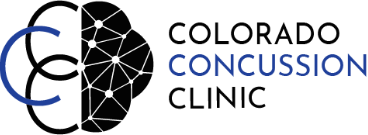As a speech-language pathologist who has focused on treating adults with neurological deficits, I hear this question ALL. THE. TIME. It’s understandable that people become very concerned whenever they have changes in their memory. And unfortunately, there is no easy answer. But hopefully the information in this blog post will provide you with the information you need to help answer this question.
Unfortunately, many of the signs of early stage dementia are also symptoms of concussion. These common signs include forgetfulness, trouble concentrating as long as you used to, difficulty finding the right words, changes in behavior/mood, and difficulty completing daily tasks. Therefore, it can be very difficult to determine if you have dementia based solely on those symptoms. One of the biggest ways to differentiate between the two is that you can typically make progress and recover after a concussion, but dementia typically gets progressively worse over time. If you did not notice any difficulties prior to sustaining your concussion, and then acute changes occurred, that would lead me to believe that the issues are concussion related. It is also possible that you are experiencing some normal cognitive decline (we call that getting older).

